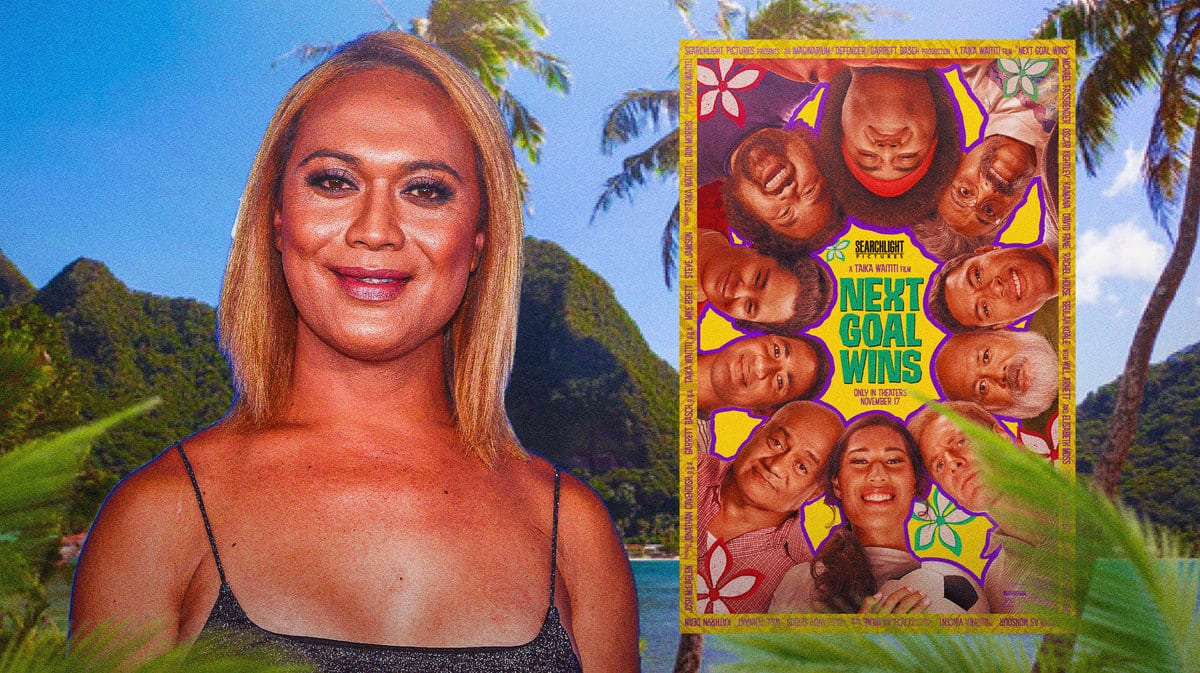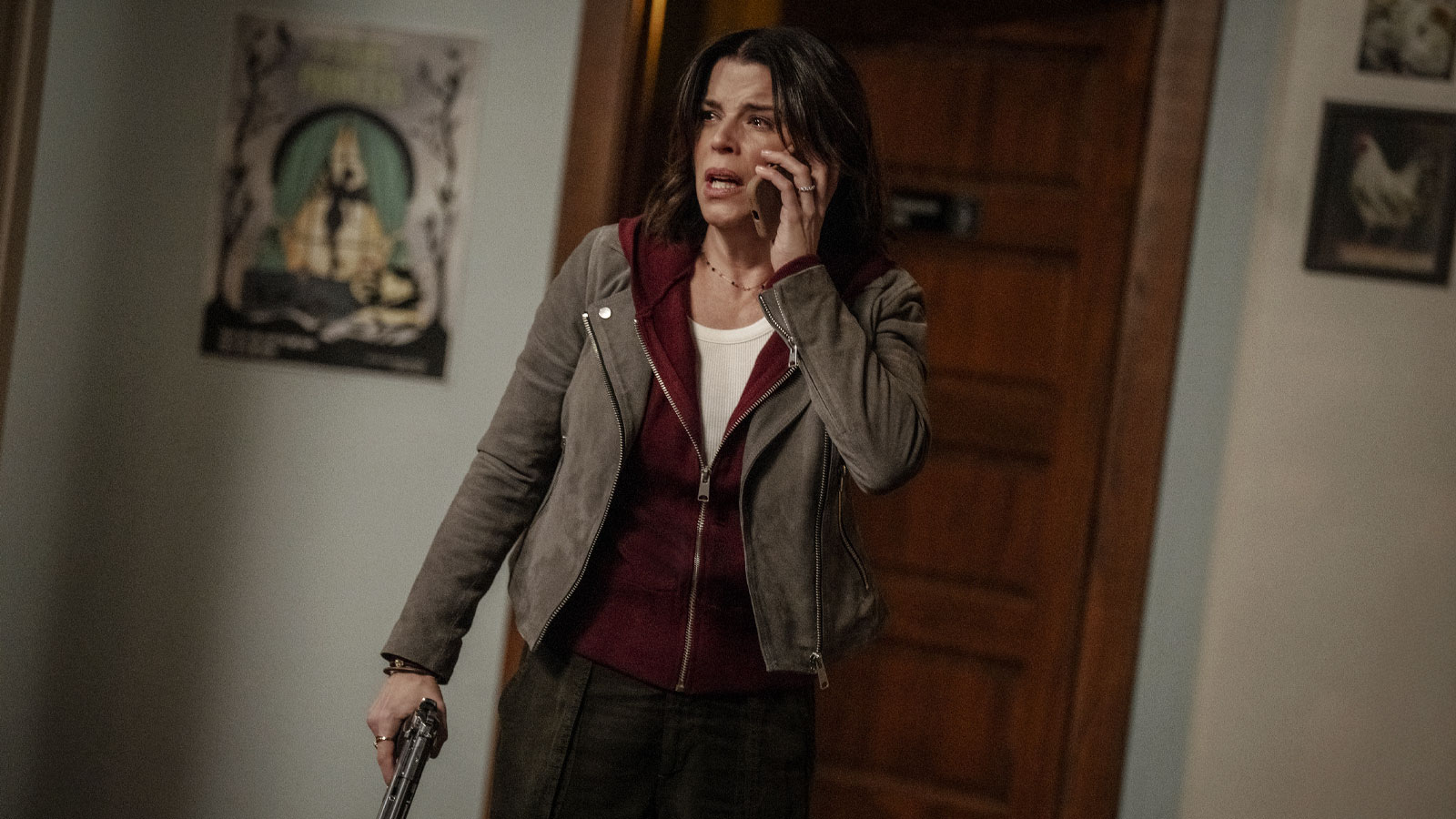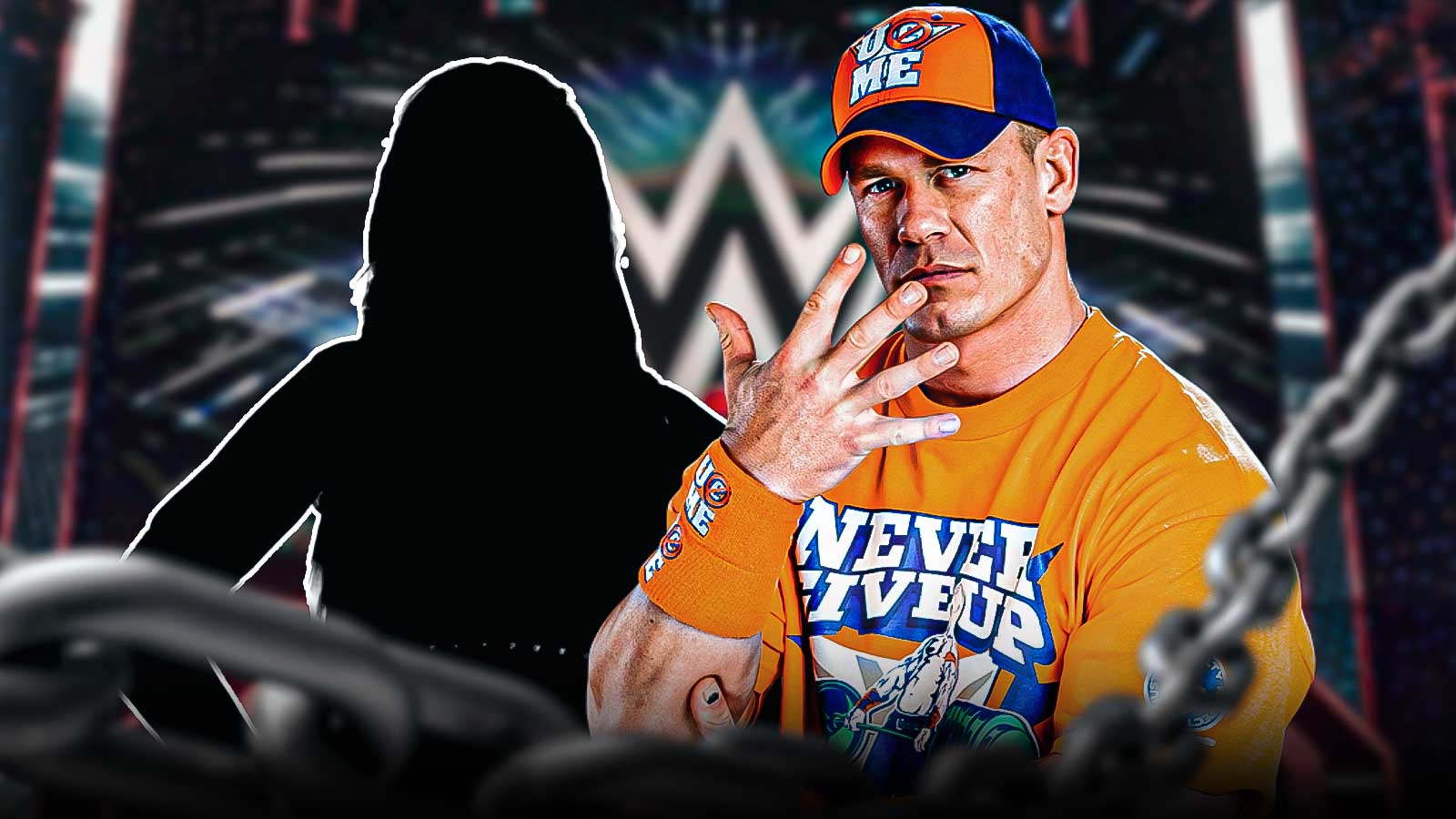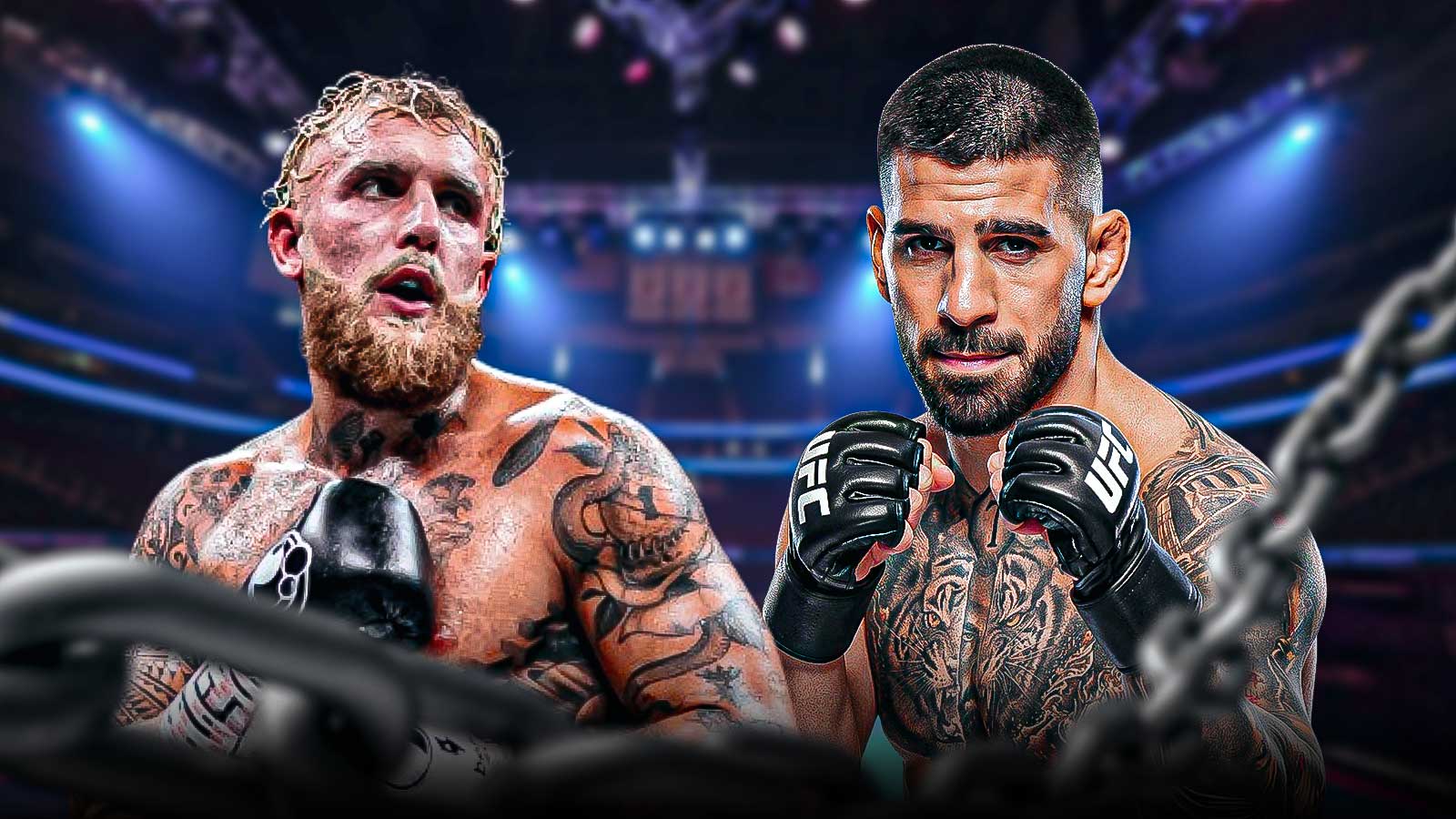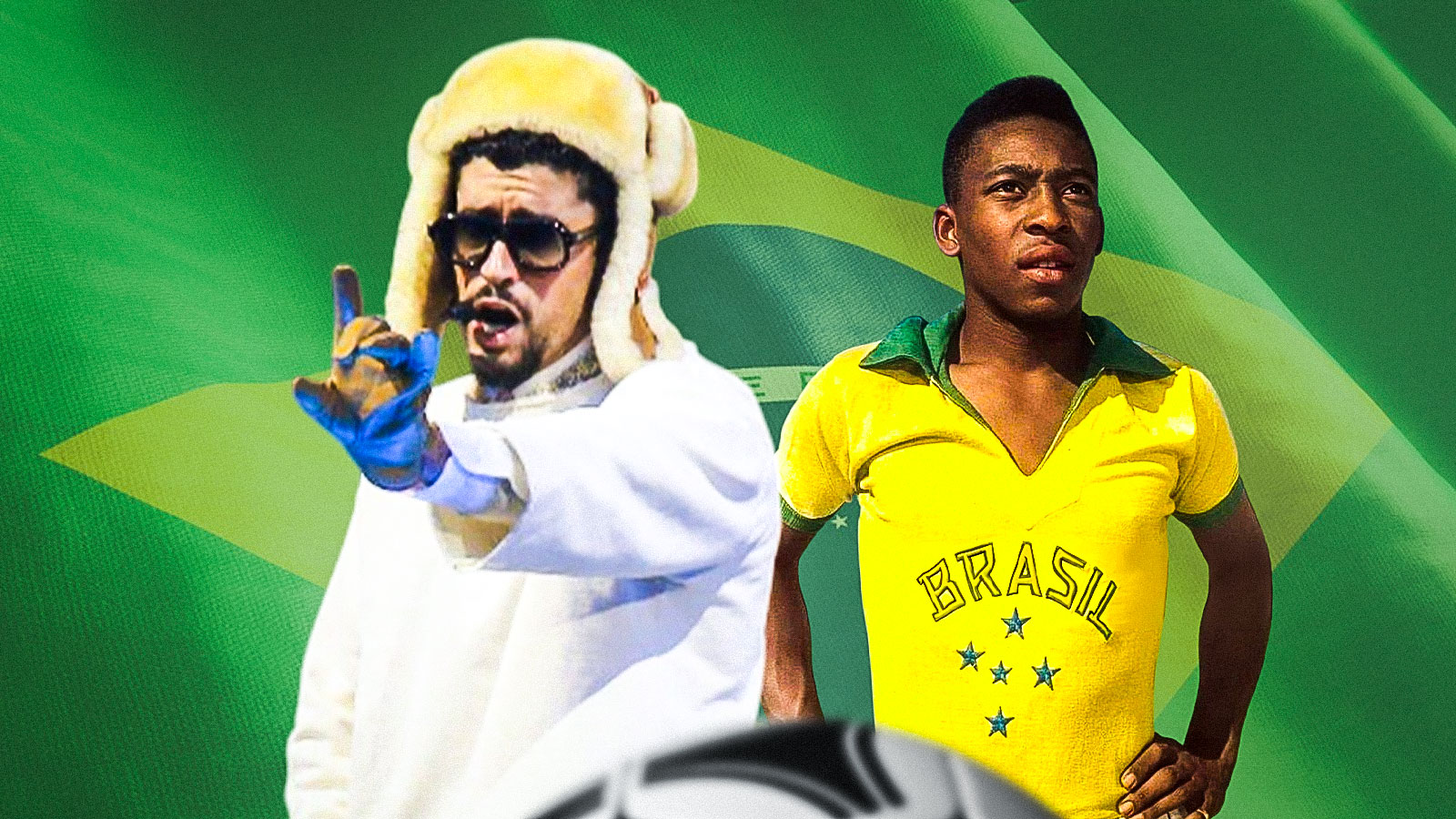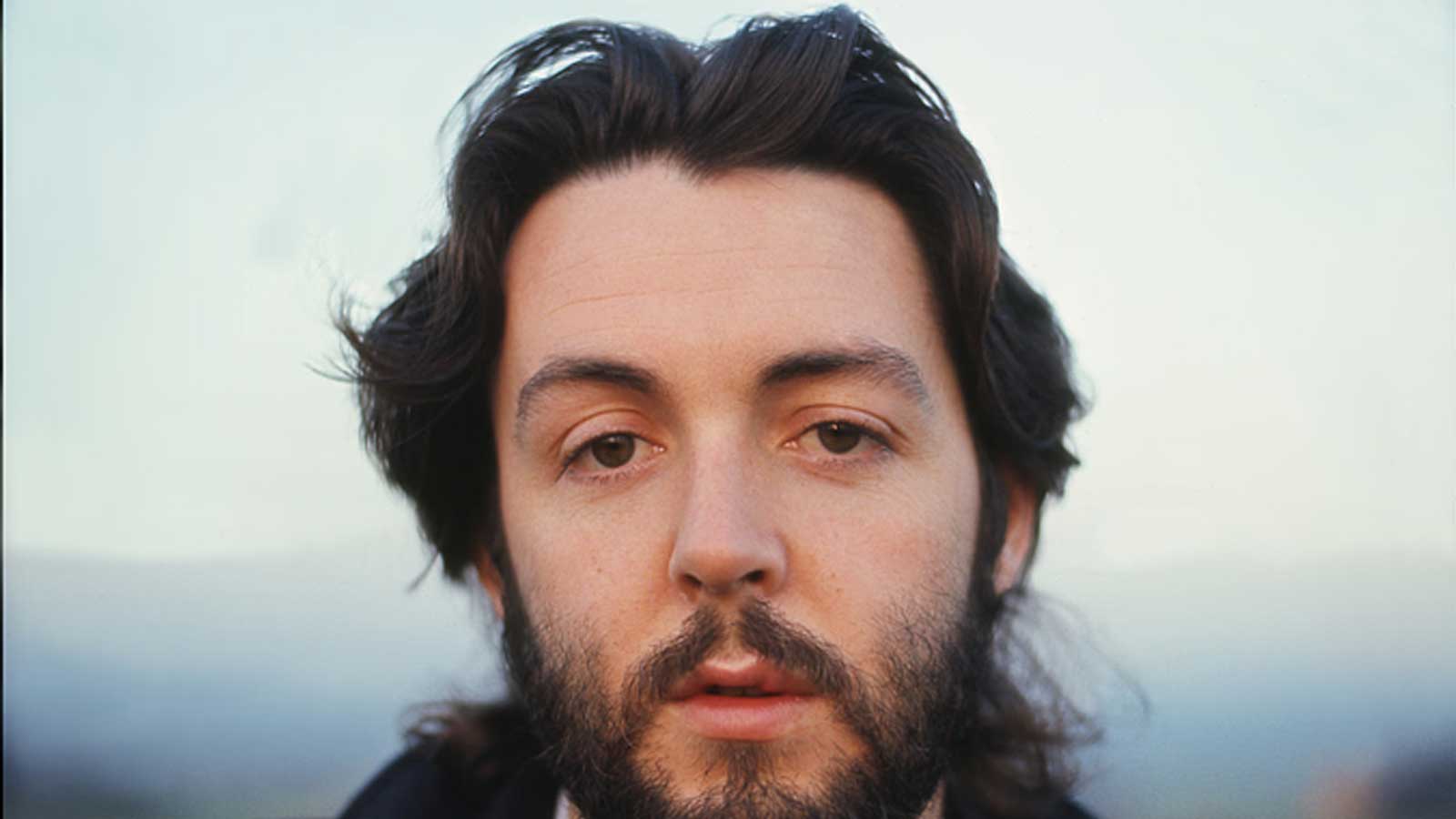Below Next Goal Wins‘ comedic surface is a heartwarming story about accepting and growing into who you are.
When you look at the marketing for the film, Next Goal Wins looks like Taika Waititi's spin on a sports story a la Cool Runnings or the Bad News Bears. But the heart of the story is Jaiyah Saelua, who is played by Kaimana in Waititi's film.
She is a historic figure in football history as a fa'afafine and the first trans woman to compete in a FIFA World Cup qualifying game.
Saelua spoke to ClutchPoints during the press day for Next Goal Wins. She discussed entrusting the American Samoa football team's story in the hands of Waititi, having her story depicted on the big screen, and debunked some of the film's historical inaccuracies.
Jaiyah Saelua, Next Goal Wins interview
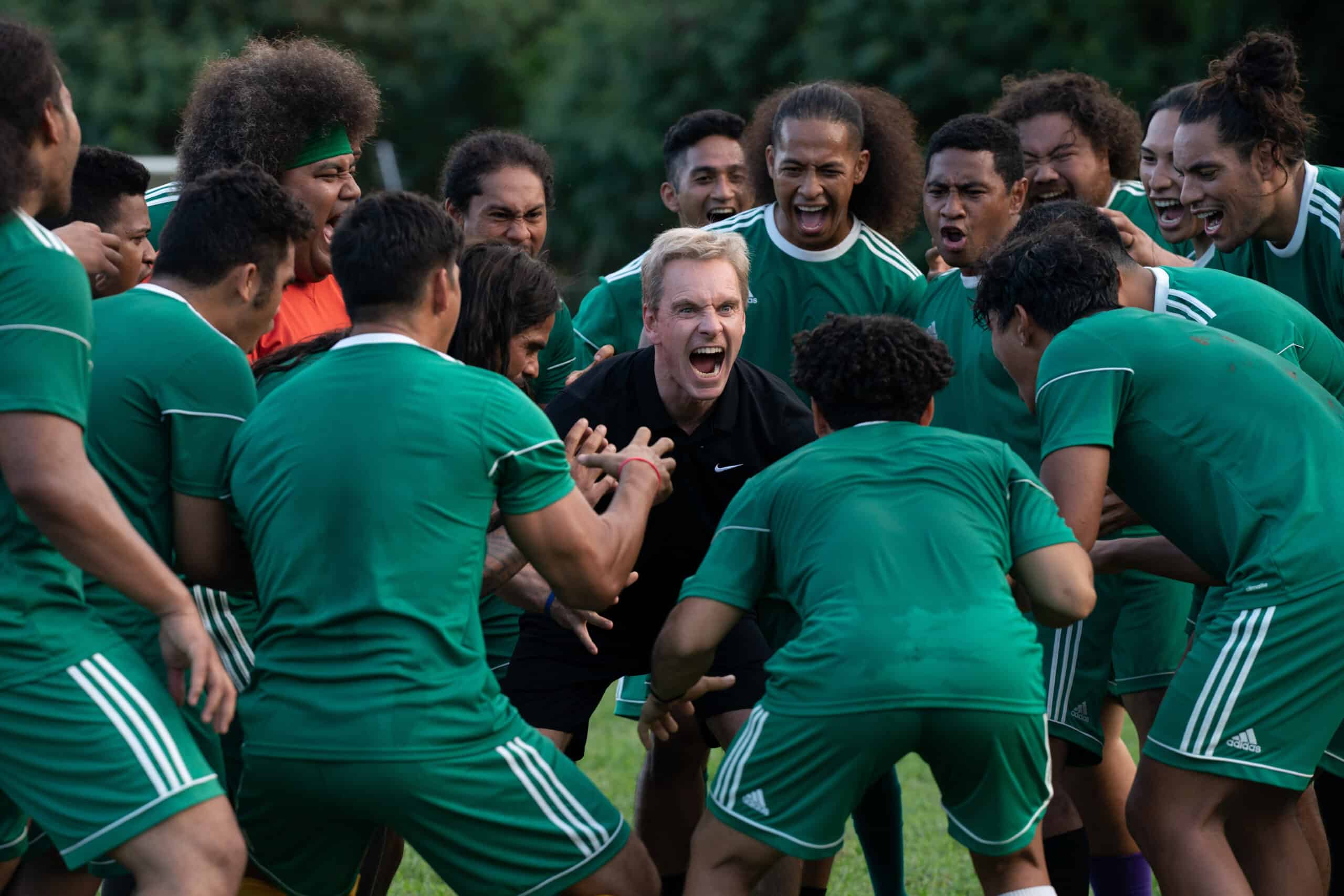
ClutchPoints: I know Next Goal Wins has gotten a lot of positive reactions from what I've seen, so I was curious what it's been like to see such positive reactions.
Jaiyah Saelua: It's been validating, I guess. [laughs]
One of the only audiences I was worried about was the Pacific Island audience and, of course, because Taika [Waititi] is a Pacific Islander and the story told [is] a Pacific story, and more than 90% of the cast and crew are PI, I was, of course, worried about how the Pacific community, especially Diaspora, would receive it, but so far so good [smiles].
And it's just a plus that audiences outside of my own community are receiving it well — even more so because they get to take a piece of my culture home with them after watching the film and realizing that there's this beautiful identity called the fa'afafine and they're respected and recognized.
CP: I think it's interesting that you just said that you were nervous about the Pacific Island reception to the film. Do you remember a specific moment, whether it was somebody's comments about the film or review of the film, that then eased that anxiety?
JS: No, it was when we screened it in American Samoa in July. Taika Waititi and Oscar Kightley were there. They brought the film with them to American Samoa. We were able to screen it at our local theater.
I was able to rally the football federation of American Samoa, the soccer community, the fa'afafine community, business leaders, government leaders, and it was for them.
I'd seen it before them, and I loved it personally, but sitting in that theater and hearing them laugh, hearing them cry, hearing them cheer, was all the validation that I needed. It made me feel confident [in] presenting the film to the rest of the world.
CP: I haven't seen the documentary that first chronicled the American Samoa team in 2014, but that was almost a decade ago, so a long bit of time has passed since then. I know you just mentioned Taika Waititi. Was there anything from his filmography that gave you confidence that he could handle the story of the American Samoa football team?
JS: Oh, the simple fact that he was a Pacific Islander and one of the only renowned [Pacific Islanders] in Hollywood. And if anyone else that wasn't PI was interested in taking this or retelling this story, it could have gone either way. I'm leaning more towards badly [laughs], because there are a lot of things that are specific — our mannerisms, our sense of humor, the things we say and do that are specific to Pacific people that only a Pacific person can joke about and it'll be okay.
CP: Having mentioned that his perspective which allowed him to really understand the community, is there something in the film specifically that Waititi brought with that sensitivity of Pacific Islanders that I can look for upon re-watch?
JS: It was very [telling] that the most sensitive character in the movie and story was Jaiyah, and that was so beautifully portrayed by Kaimana.
The first thing he did was cast the right person. Someone who's a Samoan, someone who's a fa'afafine, is a trans woman [and is] athletic, looks good [laughs], and can act. This is a recipe that [is] so hard to find and they were able to find Kaimana and she performed so beautifully.
But also the writers and Kaimana as well and through Taika's direction were able to portray the sensitivities that surround the fa'afafine identity and tell the significance of our identity in a very special way, but also remind us in comparison that the trans identity also has a lot of realities and a transwoman in transition goes through a lot of uncomfortable situations.
So we see a whole myriad of experiences that Kaimana goes through in the movie that really resonated with my own, not [always] accurate to the timeline — it was supposed to be filmed in 2011 — but accurate [to] my entire life's experiences.
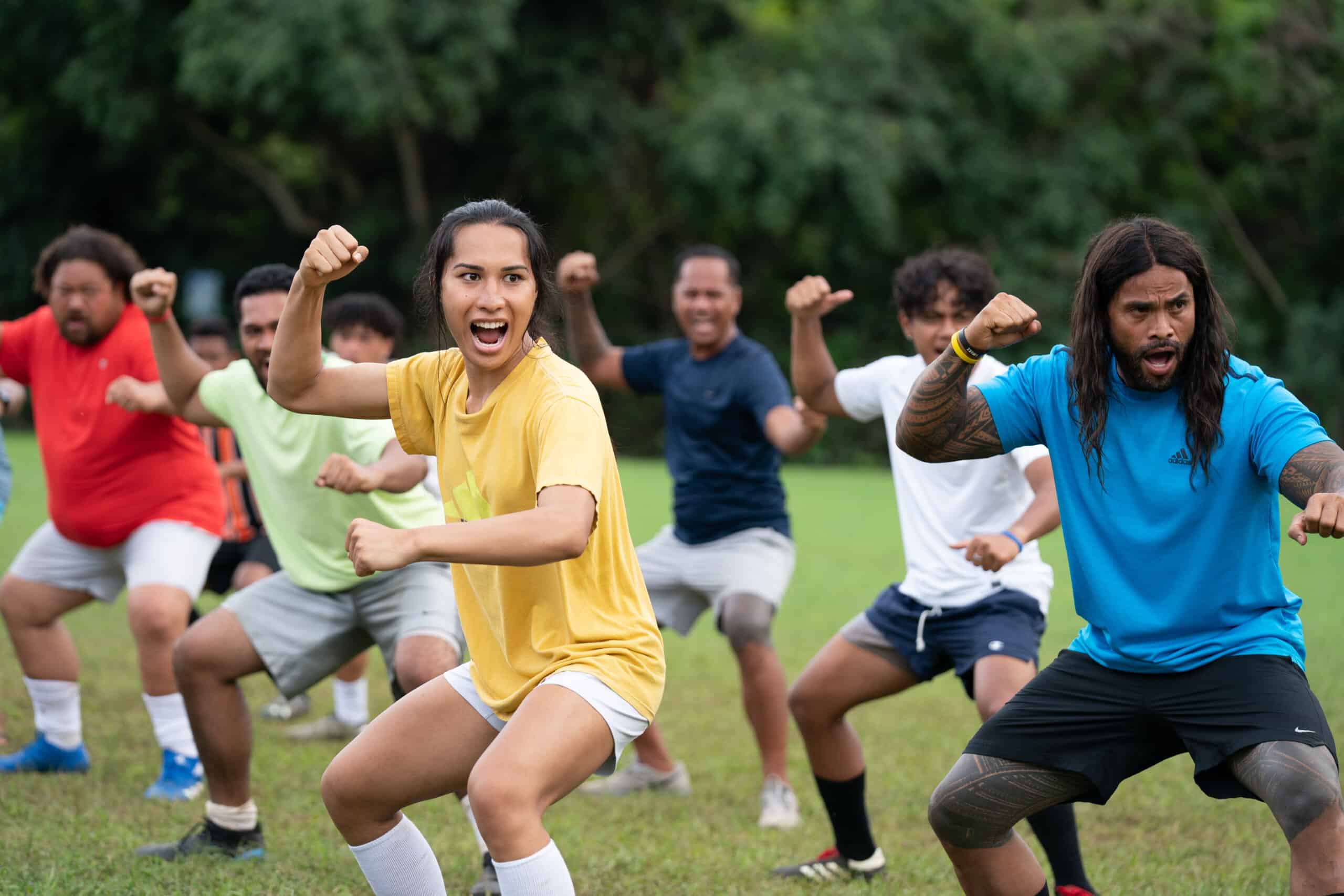
CP: How much were you consulted with depicting your own story?
JS: We just let Taika do his thing. They reached out and asked if there was anybody I had in mind to audition [to play me]. Of course, I told my friends, “Submit, see who gets it.”
I think they made the right decision in not choosing someone who knew me initially only because it could be problematic that they know me, [it] could get in the way of Taika's direction, [and it] could [even] get in the way of their acting. I think Kaimana had a special job in getting to know me on a not-so personal level prior to filming. And I think she was able to pull off all of these scenes because of that. I just feel like the right decision was made in who they casted.
CP: And once she was cast, did you guys spend time together and bond?
JS: I met her at the launch party of Next Goal Wins in Hawai, and then I think it was the first week of filming. I was invited on set, sat next to Taika while he was doing his thing. And then during the lunch breaks, I would go and check up on her and basically just build a friendship relationship with her and not so much of a “colleague mentor” kind [of] relationship.
And that's what it has grown to be. I mean, I just had brunch with her yesterday and got to meet her three trans sisters and, yeah, we're close in that sense now. This movie is going to bond us forever, and I feel like that's special.
CP: I think a lot of people, whether they have a fun night out or something like that, say, “This could have been a movie,” but your story actually is a movie. When you were going through your real life experiences playing football and whatnot, did you ever feel as if this could be portrayed in a movie?
JS: No.
Andrew, these things don't happen to us in American Samoa. We go about our lives and everybody does their own thing.
It's funny because it felt like the stars aligned in 2011 because I had dropped out of school that year to play in the World Cup qualifiers because I was so adamant [about] playing football again. So I dropped out of school to play for that team.
Coincidentally, a film crew came to American Samoa to film that team, and it initially [was] to capture what the essence of football was in American Samoa for the love of the game. And as they were filming throughout the weeks, they started to realize that different characters were showing themselves and a storyline could be [made].
So it went from static filming to like running around, following the ball and the team. I mean, they just became so aggressive in the way they were filming it [and] we realized that it was turning into something else. And eventually, [it] came out [as] a documentary. There [are] a lot of little things that just aligned for us that time.
What are the odds that the year that a film crew from London come to film us is the year we get a coach from the United States Soccer Federation (Thomas Rongen); [it's] the year we win our first match ever; it's the year we move on to play the championship match in that round of the Oceania World Cup qualifiers; it's the year I had already started my transition and am now recognized as the first out transgender [player].
All of those things just happened to happen that year that made it into an interesting story [scoffs], and here we are now. The universe is crazy like that.
Face-checking the film
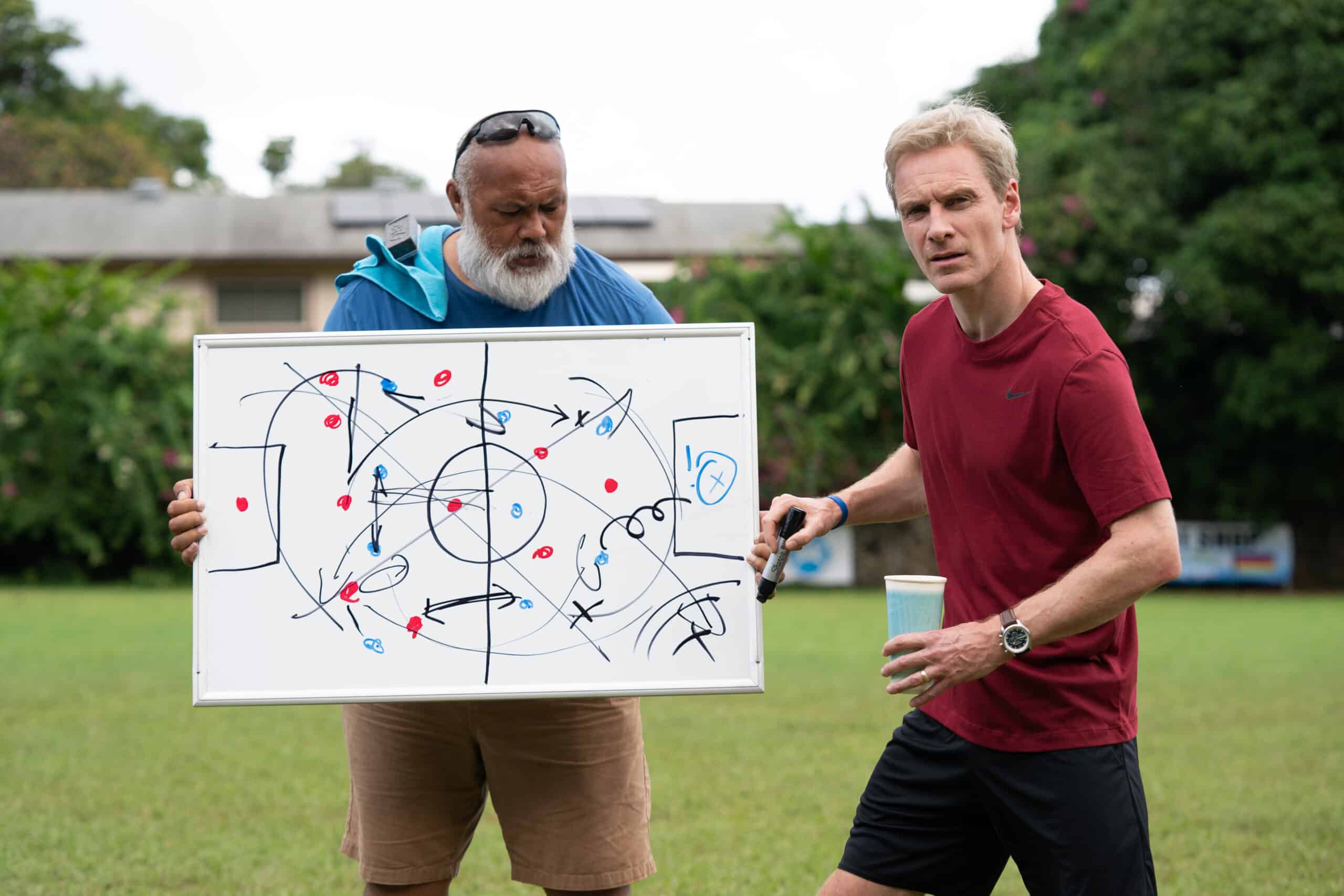
CP: Can you fact-check a few of the scenes for me? I'm curious if some of these things actually happened. The first is when you slam Thomas Rongen's head into the grass.
JS: [laughs] Oh, how I wish! No, we didn't have that kind of tension. Of course, he's the coach, I'm the player, [so] there's a space between us that we have to respect. Even as in Samoan culture, there's called va feiloa'i, which is the contextual space between you and another person, depending on who that person is or who you are, and it just changes depending on who those people are in between those spaces.
So between me and him as a player and a coach, there was nothing like that.
But it is now. We have a much closer relationship now because of the journey that we shared [in] Next Goal Wins, the doc[umentary], and now this movie.
CP: Has he seen this movie and if so, have you gotten his thoughts on it?
JS: Yeah, we did TIFF together — the world premiere.
I mean, he has nothing to complain about. Michael Fassbender is playing him. [laughs]
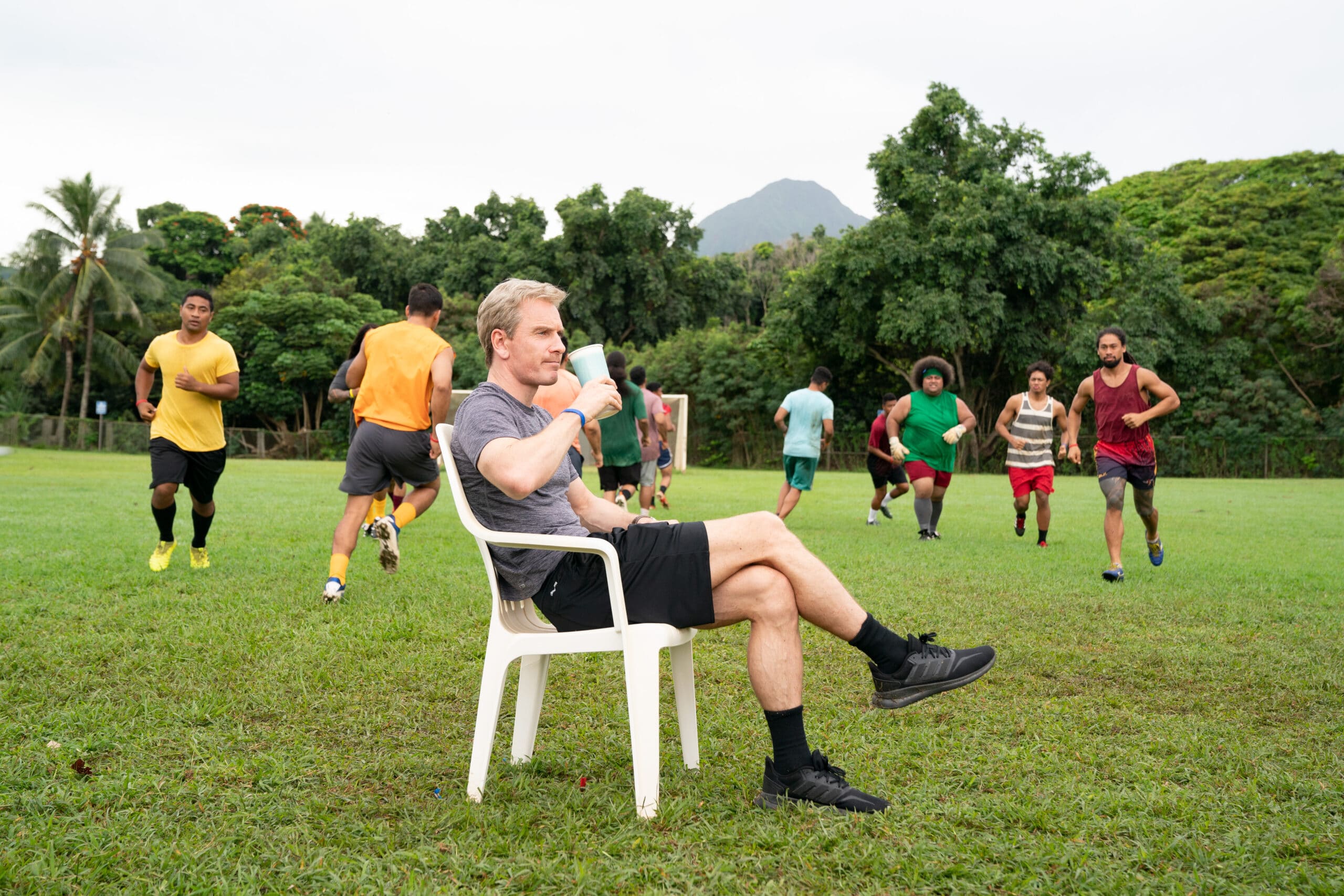
CP: In the film, pretty soon after you slam his head into the ground, you go to his house and then you guys have a bit of a heart-to-heart on the beach. Is that something that was drawn from in real life?
JS: Uh, no. I think what was important to the creativity of the film or the creation of the film was creating a villain, creating a hero, making sure those aspects of an interesting story [were] met.
But it's not 100% inaccurate. I do end up being the hero of the team in 2011 and Thomas does end up changing us and we end up changing him in so many different ways.
A lot of the important things of the documentary that you get, the feel-good [energy] that you get from the doc, you still get in the movie, and then Taika's creativity just adds on a lot of flair.
CP: You're asked to be a captain and given the armband toward the end of the film. Did that happen like that in real life?
JS: That was not in 2011, but it did happen in 2019. 2019 was the first time that I was named the captain of the football team, only because I was not only one of the more skilled players, I was a senior player of the national team. A lot of the older national team players have moved on to the mainland and a lot of younger ones came.
And at the time I, in 2011, was still one of the younger players. So by 2019, I was one of the senior ones. I was given the honors.
CP: I was watching an interview you did with the real-life Thomas Rongen back in 2014 for the documentary. You were so enthusiastic about that being about the team, but you end up being the centerpiece of the film. Did it ever feel overwhelming to have your story really be the centerpiece of this film?
JS: You know, the documentary is about the team. I was just one part of the storyline. There were different stories that made the doc flow very well.
My teammate Ramin [Ott], who came from the military to play with his brother, who was also in the military; Rawlston [Masaniai], who was a new player, for the first time representing American Samoa; Nicky [Salapu] was coming out of retirement after the 31-0 loss; me, as a fa'afafine, [there were] different characters.
But Taika's version really highlights Kaimana and his version of Jaiyah and I was really grateful that he was generous [enough] to do that, because, I mean, the social climate now is really problematic for LGBTQI+ and SOGI people, and so highlighting Jaiyah in a way that was beautiful and real I feel is very important and very much needed as well at this time.
Next Goal Wins is in theaters now.

